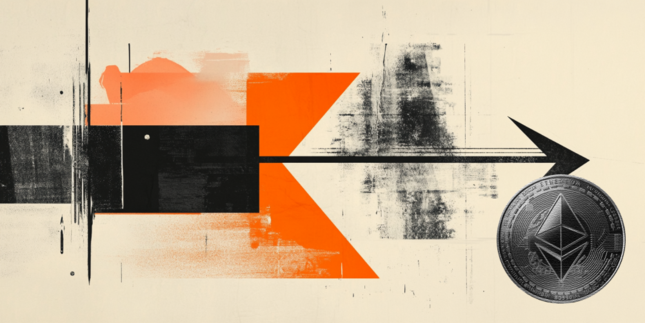Canada’s growing gold exports to China provide more evidence of the shift of gold from the West to the East.
Asian gold demand has been hot through the first half of 2024. Vietnamese and Thai investors flocked to gold despite long lines and high prices. Gold is flying off convenience store shelves in Korea. And gold demand in India recently surged during an important festival.
But China has been the biggest driver in Eastern gold demand.
As the Chinese central bank bought gold and dumped U.S. Treasuries, young Chinese investors lined up at shops to purchase gold beans.
Franco-Nevada Corp. Chairman Emeritus Pierre Lassonde recently said the world needs to wake up to this fact.
“The marginal buyer of gold is no longer the U.S. It’s no longer Europe. It’s China. … China takes up over two-thirds of all the annual production…That’s where the gold price is set.”
Meanwhile, Western investors still haven’t hopped on the bandwagon, despite record gold prices in recent months. Fund managers Leigh Goehring and Adam Rozencwajg noted in their Q1 newsletter that Western investors have lost their influence in the gold market and continued to liquidate gold holdings in the first quarter even as prices rallied.
“Western investors continue to sell their gold while Central Banks and Chinese and Indian retail investors continue to buy aggressively. With gold making record highs, it is clear who is winning.”
Although the People’s Bank of China has paused gold buying (at least as far as what they’re officially reporting), the Chinese central bank was the biggest gold buyer in 2023. Officially, the People’s Bank of China added more than 300 tons of gold to its reserves during its most recent buying spree.
An article in the Financial Post suggested the Chinese are trying to minimize their exposure to the dollar and the possibility of it being used as a weapon against them.
“Some analysts think China’s central bank’s growing purchases of gold is a geopolitical reaction. After Russia invaded Ukraine, the U.S. and its allies froze billions of dollars of Russian assets, and analysts have said they believe China views gold as a way to gain protection against the U.S. and any other country that could freeze its assets.”
The Chinese central bank isn’t alone in buying gold. Chinese investors are also snapping up the yellow metal.
“There has been this perception that central banks are the only buyers in town, but the reality is that the retail buying in both gold and silver has been buoyant as well, especially out of China,” Sprott Asset Management senior portfolio manager Shree Kargutkar told the Post.
This is despite record-high premiums on gold in China.
“The bottom line is there has been a marked change in the Chinese consumer as far as gold and silver go; they’re paying up for it,” Kargutkar said.
China ranks as the world’s top gold producer. Nevertheless, it still must import gold from other countries to meet demand.
Canada is one of the countries that supplies gold to China, and Canadian gold exports have surged this year despite trade tensions between the two countries.
Ontario Minister of Economic Development Vic Fedeli told the Financial Post that precious metals now represent the province’s biggest export to China.
In 2023, Canada sold $589 million CAD in gold to the Chinese. That was up from $189 million CAD in 2020. That represents a 211.6 percent increase.
World Gold Council senior market strategist Joe Cavatoni called gold exports to China “a key component for the Canadian mining market."
There is no sign that the Asian love affair with gold is going to end any time soon. That means a continued flow of gold from the West to the East.
Do Chinese and other Asian investors know something Westerners have forgotten?
And what will it mean for the gold market if Westerners figure it out?
Money Metals Exchange and its staff do not act as personal investment advisors for any specific individual. Nor do we advocate the purchase or sale of any regulated security listed on any exchange for any specific individual. Readers and customers should be aware that, although our track record is excellent, investment markets have inherent risks and there can be no guarantee of future profits. Likewise, our past performance does not assure the same future. You are responsible for your investment decisions, and they should be made in consultation with your own advisors. By purchasing through Money Metals, you understand our company not responsible for any losses caused by your investment decisions, nor do we have any claim to any market gains you may enjoy. This Website is provided “as is,” and Money Metals disclaims all warranties (express or implied) and any and all responsibility or liability for the accuracy, legality, reliability, or availability of any content on the Website.
Recommended Content
Editors’ Picks

EUR/USD bounces off lows, retests 1.1370
Following an early drop to the vicinity of 1.1310, EUR/USD now manages to regain pace and retargets the 1.1370-1.1380 band on the back of a tepid knee-jerk in the US Dollar, always amid growing optimism over a potential de-escalation in the US-China trade war.

GBP/USD trades slightly on the defensive in the low-1.3300s
GBP/USD remains under a mild selling pressure just above 1.3300 on Friday, despite firmer-than-expected UK Retail Sales. The pair is weighed down by a renewed buying interest in the Greenback, bolstered by fresh headlines suggesting a softening in the rhetoric surrounding the US-China trade conflict.

Gold remains offered below $3,300
Gold reversed Thursday’s rebound and slipped toward the $3,260 area per troy ounce at the end of the week in response to further improvement in the market sentiment, which was in turn underpinned by hopes of positive developments around the US-China trade crisis.

Ethereum: Accumulation addresses grab 1.11 million ETH as bullish momentum rises
Ethereum saw a 1% decline on Friday as sellers dominated exchange activity in the past 24 hours. Despite the recent selling, increased inflows into accumulation addresses and declining net taker volume show a gradual return of bullish momentum.

Week ahead: US GDP, inflation and jobs in focus amid tariff mess – BoJ meets
Barrage of US data to shed light on US economy as tariff war heats up. GDP, PCE inflation and nonfarm payrolls reports to headline the week. Bank of Japan to hold rates but may downgrade growth outlook. Eurozone and Australian CPI also on the agenda, Canadians go to the polls.

The Best brokers to trade EUR/USD
SPONSORED Discover the top brokers for trading EUR/USD in 2025. Our list features brokers with competitive spreads, fast execution, and powerful platforms. Whether you're a beginner or an expert, find the right partner to navigate the dynamic Forex market.